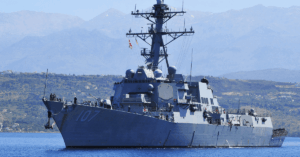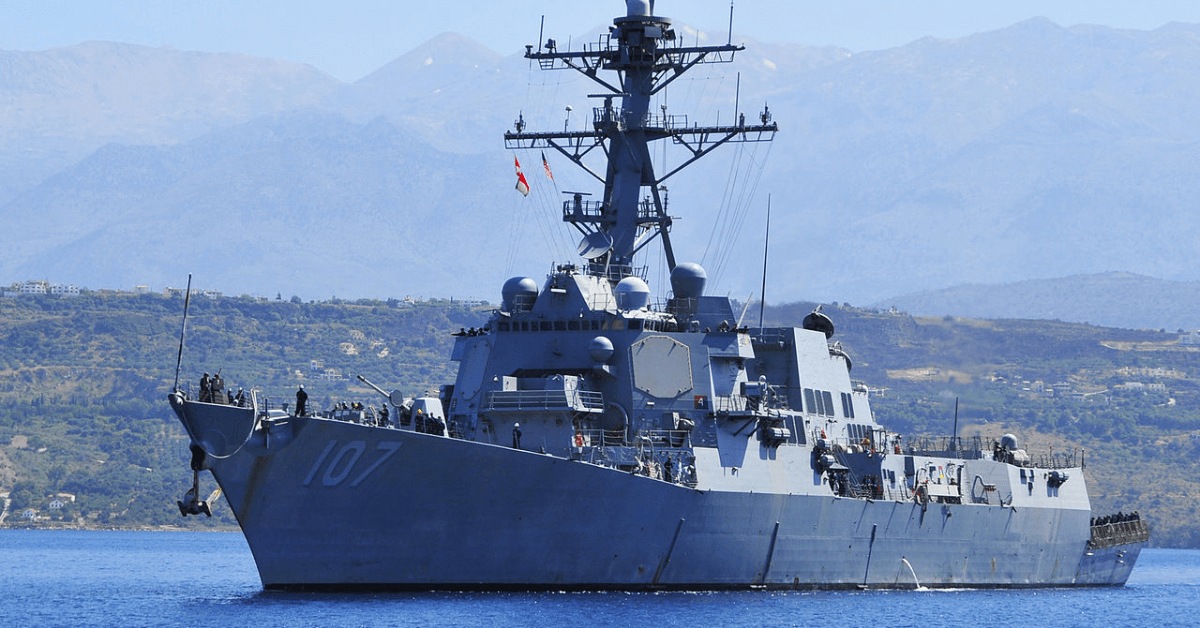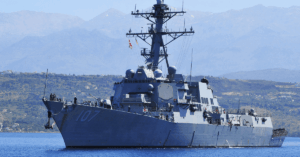
IMO Announces 2025 World Maritime Day Theme: ‘Our Ocean, Our Obligation, Our Opportunity’
August 20, 2025
MOL Cruises Names New Ship ‘MITSUI OCEAN SAKURA’ Ahead Of 2026 Launch
August 20, 2025

The United States is sending three Aegis guided-missile destroyers to the waters off Venezuela to counter Latin American drug cartels, which Washington has recently designated as global terrorist organizations.
According to sources briefed on the matter, the USS Gravely, USS Jason Dunham and USS Sampson will reach the southern Caribbean within the next 36 hours. A separate U.S. defense official said about 4,000 sailors and Marines are being assigned to the mission.
The deployment also includes several P-8 surveillance aircraft, other warships, and at least one attack submarine. Officials explained that the operation would run for several months, with the ships and aircraft conducting surveillance and intelligence missions in international waters and airspace. They added that the destroyers could also be used to launch targeted strikes if ordered.
In recent months, the administration already sent two warships to assist border security and anti-trafficking efforts. Washington formally designated Mexico’s Sinaloa Cartel, MS-13 in El Salvador, Venezuela’s Tren de Aragua, and several other groups as foreign terrorist organisations in February.
Trump has also urged Mexican President Claudia Sheinbaum to take tougher action against cartels. Sheinbaum, however, rejected U.S. intervention, emphasizing Mexico’s sovereignty.
Venezuela’s government dismissed the accusations. Foreign Minister Yvan Gil said U.S. claims of drug trafficking show a “lack of credibility” and called Washington’s regional policies a failure. He said Venezuela remains committed to sovereignty and peace, and that crime should be fought through respect for independence, not foreign threats.
President Nicolás Maduro also spoke about the growing U.S. military presence without mentioning the destroyers directly. He said Venezuela would defend its seas, skies, and land, calling the United States “a declining empire making bizarre threats.”
Maduro further accused Washington of increasing its hostility toward Venezuela and announced the mobilisation of more than 4.5 million militia members across the country. The militias, created by late President Hugo Chávez, were designed to support the armed forces in defending against external and internal threats.
In another measure, the Venezuelan government announced a temporary ban on the use, purchase, and operation of drones in national airspace. The move follows a 2018 incident in which explosive-laden drones detonated near Maduro during a live televised speech.
The Trump administration has also intensified its campaign against Maduro personally. Earlier this month, Washington doubled its reward for his arrest from $25 million to $50 million, accusing him of being one of the world’s most significant narco-traffickers and working with cartels to flood the U.S. with fentanyl-laced cocaine.
Maduro and several of his close allies were indicted in a New York federal court in 2020 on charges of narco-terrorism and conspiracy to smuggle cocaine. At the time, the U.S. offered $15 million for his capture.
References: Reuters, AP News
Source: Maritime Shipping News


